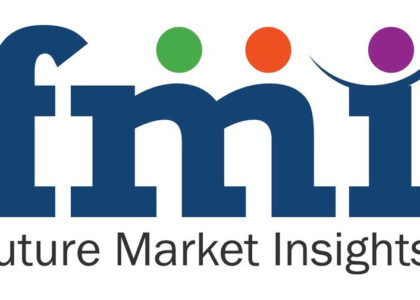The global textile auxiliaries market is projected to reach a valuation of US$ 16,589.3 Mn in 2032, with sales growing at a moderate CAGR of 5.2% from 2022 to 2032. Scaling up from a value of US$ 9,491.1 Mn in 2021, the target market will likely reach an estimated US$ 9,992.4 Mn in 2022. The expanding textile chemicals market is predicted to bolster the growth of the textile auxiliaries market during the forecast period.
Specialty chemicals that are applied in the different steps in the fabrication of textiles and fabrics are categorized as textile chemicals. These chemicals have the capacity to make fabric stronger, more adaptable, and further improve its original characteristics. The constant demand and growth of the textile chemicals industry is a prime growth driver of the global textile auxiliaries market. In addition to this, the increasing adoption of technical textiles in various industries is likely to promote the growth of the textile auxiliaries market. Technical textiles provide strength, resistance, and ensure protection from different pollutants and environmental factors. These textiles are in high demand from the rising infrastructural development and rapid urbanization. This is because technical textiles are more durable and effective as compared to traditional textile materials. This ultimately leads to the expansion of the target market.
The expanding automotive sector, increasing environmental awareness and rising application of technical textiles in environmental protection initiatives like erosion protection, waste treatment/recycling, and domestic water sewerage plants are some of the other factors that are promoting the growth of the textile auxiliaries market during the forecast period.
Get a Sample Copy of this Report @ https://www.futuremarketinsights.com/reports/sample/rep-gb-4006
“Heightened popularity as well as rising application of technical textiles in multiple industry verticals is expected to drive the global growth of the textile auxiliaries market over the forecast period,” says an FMI analyst.
Key Takeaways:
- Stringent environmental regulations will likely stunt market growth over the forecast period.
- Asia Pacific is offering multiple lucrative opportunities to the textile auxiliaries market.
- Major player of the market are keen on investing more into developing eco-friendly, energy-efficient, and affordable chemicals.
- In 2022, the pre-treatment agents subsegment will account for 38.1% of the global sales of textile auxiliaries market.
- The dyestuff segment is predicted to register a 5.3% CAGR during the forecast period.
Competitive Landscape
Huntsman Corporation, Solvay, Tata Chemicals, DyStar Singapore Pte Ltd., The Dow Chemical Company, Akzo Nobel N.V., Evonik Industries AG, Archroma Limited, Zschimmer and Schwarz GmbH & Co KG, Rudolph GmbH, ChemDyes Sdn Bhd, Oleon, Fibro Chem LLC, Covestro AG, Camex Ltd., Fineotex Group, Croda International Plc, OMNOVA Solutions Inc., and Kemin Industries among others are some of the major players in the textile auxiliaries market profiled in the full version of the report.
Major market players are concentrating on increasing investment in research and development activities to introduce innovative products in the market. These players are keen on expanding their capacity and entering new markets in emerging economies. Acquisition of other firms is another strategy employed by these organizations to gain a stronghold in the international market.
Ask an Analyst @ https://www.futuremarketinsights.com/ask-question/rep-gb-4006
More Insights into Textile Auxiliaries Market Report
In its latest report, FMI offers an unbiased analysis of the global textile auxiliaries market, providing historical data from 2014 to 2021 and forecast statistics for 2022 to 2032. To understand the global market potential, growth, and scope, the market is segmented on the basis of product type (pre-treatment agents, dye-stuffs, finishing agents, softening agents, anti-foaming against, odor absorbers, corrosion inhibitors), end user (apparel, home and institutional, technical textiles, digital printing), and region.
According to the latest FMI reports, based on segmentation, the pre-treatment agents segment will continue to lead the market growth. This category is expected to account for about 38.1% of the global sales in 2022 while the dyestuff segment is predicted to record a CAGR of 5.3% during the forecast period of 2022-2032.
Based on region, Australia, China, Japan, and India are anticipated to present substantial growth during 2022-2032. Together, all of these nations will hold about 40%-45% value share of the global market. Factors like rising population, swiftly growing economies, advancing textile and textile chemicals industry, increasing manufacturing and consumption of clothing items, and an increasingly strong presence of small and medium enterprises are expected to fuel the growth of the textile auxiliaries market in these countries. Other nations like the U.S., Germany, and the U.K. will also exhibit considerable growth over the forecast period.
Textile Auxiliaries Market Segmentation
By Product Type:
- Pre-Treatment Agents
- Dye-Stuffs
- Finishing Agents
- Softening Agents
- Anti-Foaming Agents
- Odour Absorbers
- Corrosion Inhibitors
By End Use:
- Apparel
- Home and Institutional
- Technical Textiles
- Digital Printing
By Region:
- North America
- Latin America
- Europe
- East Asia
- South Asia & Pacific
- Middle East & Africa
About FMI
Future Market Insights (ESOMAR certified market research organization and a member of Greater New York Chamber of Commerce) provides in-depth insights into governing factors elevating the demand in the market. It discloses opportunities that will favor the market growth in various segments on the basis of Source, Application, Sales Channel and End Use over the next 10-years.
Contact Us:
Future Market Insights Inc.
Christiana Corporate, 200 Continental Drive,
Suite 401, Newark, Delaware – 19713, USA
T: +1-845-579-5705
For Sales Enquiries: sales@futuremarketinsights.com
LinkedIn| Twitter| Blogs


